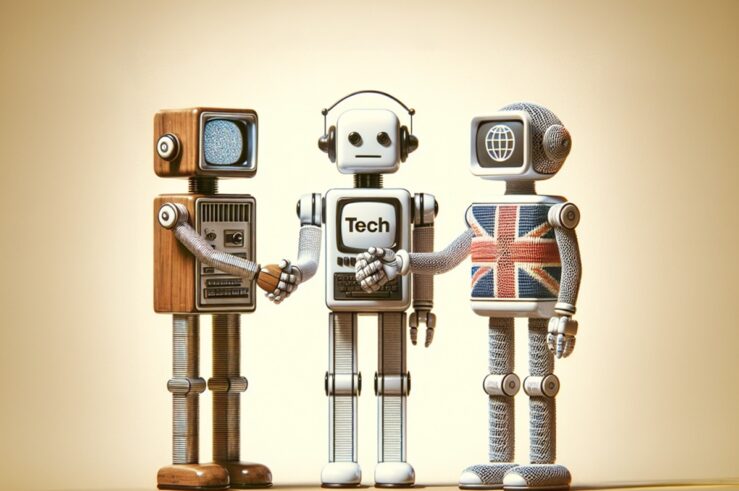Showing results for: “premium natural and organic”
The Supreme Court Misses the Big Consumer Welfare Picture in NCAA v. Alston
In its June 21 opinion in NCAA v. Alston, a unanimous U.S. Supreme Court affirmed the 9th U.S. Circuit Court of Appeals and thereby upheld a district court injunction finding unlawful certain National Collegiate Athletic Association (NCAA) rules limiting the education-related benefits schools may make available to student athletes. The decision will come as no ... The Supreme Court Misses the Big Consumer Welfare Picture in NCAA v. Alston
The first thing we do, let's kill the quants!
Professor Bainbridge has a provocative post up taking on empirical legal scholarship generally. The While the Professor throws a little bit of a nod toward quantitative work, suggesting it might at least provide some “relevant gist for the analytical mill,” he concludes that “it’s always going to be suspect — and incomplete — in my ... The first thing we do, let's kill the quants!
Thoughts on "The Small Bill"
Writing in the Weekly Standard, Jeffrey Anderson offers an alternative to Obamacare (or should we call it Pelosireidcare?). The seven provisions in the “Small Bill” seem sensible to this nonexpert. Allowing insurance to be sold interstate is likely to bring down costs and improve service — wouldn’t some competition from Geico Health Insurance be a ... Thoughts on "The Small Bill"
Coke, Pepsi, Product Promotion and the Efficiencies of Vertical Integration
The soda industry is trending toward vertical integration, which Coke and Pepsi acquiring their largest bottlers. From the WSJ: Coke and PepsiCo sell concentrate to bottlers, which then bottle and distribute the soft drinks in their territories. Many of these smaller bottlers are small businesses that have been run by family members for decades and ... Coke, Pepsi, Product Promotion and the Efficiencies of Vertical Integration
Flattening the Curve without Squashing Society: Market Responses to COVID-19
The COVID-19 pandemic is changing the way consumers shop and the way businesses sell. These shifts in behavior, designed to “flatten the curve” of infection through social distancing, are happening across many (if not all) markets. But in many cases, it’s impossible to know now whether these new habits are actually achieving the desired effect. ... Flattening the Curve without Squashing Society: Market Responses to COVID-19
No, Chevron Deference Will Not Save the FTC’s Noncompete Ban
The Federal Trade Commission (FTC) announced in a notice of proposed rulemaking (NPRM) last month that it intends to ban most noncompete agreements. Is that a good idea? As a matter of policy, the question is debatable. So far as the NPRM is concerned, however, that debate is largely hypothetical. It is unlikely that any ... No, Chevron Deference Will Not Save the FTC’s Noncompete Ban
The ICANN Board’s Important Test of Independence: .Amazon
One of the main concerns I had during the IANA transition was the extent to which the newly independent organization would be able to behave impartially, implementing its own policies and bylaws in an objective and non-discriminatory manner, and not be unduly influenced by specific “stakeholders”. Chief among my concerns at the time was the ... The ICANN Board’s Important Test of Independence: .Amazon
Will Montesquieu Rescue Antitrust?
In an age of antitrust populism on both ends of the political spectrum, federal and state regulators face considerable pressure to deploy the antitrust laws against firms that have dominant market shares. Yet federal case law makes clear that merely winning the race for a market is an insufficient basis for antitrust liability. Rather, any ... Will Montesquieu Rescue Antitrust?
AI Partnerships and Competition: Much Ado About Nothing?
Competition policymakers around the world have been expressing concerns about competition in emerging artificial-intelligence (AI) industries, with some taking steps to investigate them further. These fears are notably fueled by a sense that incumbent (albeit, in adjacent markets) digital platforms may use strategic partnerships with AI firms to stave off competition from this fast-growing field. ... AI Partnerships and Competition: Much Ado About Nothing?
Rebuilding Trust in Coronaworld
Governments are beginning to lift the lockdowns they imposed to slow the spread of COVID-19. That is a good thing. But simply lifting the restrictions won’t immediately take us back to normality. For that to happen requires a massive investment in mechanisms that will rebuild trust. Prior to COVID-19, people implicitly trusted that travelling on ... Rebuilding Trust in Coronaworld
More Corona Testing Is Necessary, But Not Sufficient, To Get Us Back on Our Feet. Verification of Good Health Is Also Required
In these harrowing times, it is a natural to fixate on the problem of testing—and how the United States got so far behind South Korea on this front—as a means to arrest the spread of Coronavirus. Under this remedy, once testing becomes ubiquitous, the government could track and isolate everyone who has been in recent ... More Corona Testing Is Necessary, But Not Sufficient, To Get Us Back on Our Feet. Verification of Good Health Is Also Required
What Is a Barrier to Entry?
Why do monopolies exist? Many textbooks point to barriers to entry as a cause of monopolies. Tyler Cowen and Alex Tabarrok’s textbook says: “In addition to patents, government regulation and economies of scale, monopolies may be created whenever there is a significant barrier to entry, something that raises the cost to new firms of entering the industry.” ... What Is a Barrier to Entry?









